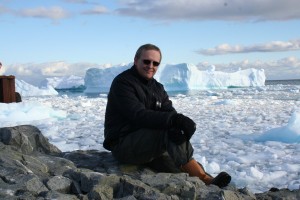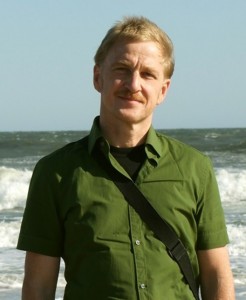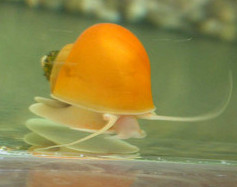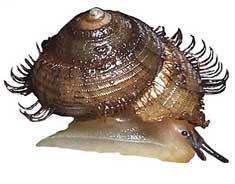Conference Programme now available: Download PDF
Preliminary Session Themes
- Molluscan physiology and toxicology
- Next generation sequencing
- Invasive molluscs and pests
- Taxonomy and phylogenetics
- Biogeography, ecology and conservation
- Molluscs, climate and archaeology
Preliminary Congress timetable (subject to change):
Sunday 7th September
- Early registration
- Keynote lectures
- Wine reception
Monday 8th September
- Registration
- Session 1
- Lunch
- Session 2
Tuesday 9th September
- Registration
- Session 3
- Lunch
- Session 4
Wednesday 10th September
- Registration
- Session 5
- Lunch
- Session 6
- Conference dinner
Thursday 11th September
- Field excursion
- End of meeting
Keynote speakers:
Prof. Lloyd Peck (British Antarctic Survey, Cambridge)
 Lloyd Peck is based at the British Antarctic Survey, where he is a leading Antarctic scientist with over 200 refereed papers, major reviews and book chapters. His career includes the giving of over 30 keynote speeches, the prestigious 2004 Royal Institution Christmas Lectures and 15 televised lectures in Japan, Korea and Brazil. Lloyd’s major scientific interests are in identifying how animals are adapted to their environments and how those adaptations affect capacities to respond or resist environmental change. His specific interests are in extreme polar regions and his main recent achievements are in showing that Antarctic marine species are possibly the least capable of responding to environmental change and stress of any on Earth, and in identifying and giving mechanistic explanations for a range of adaptations to the low stable temperature and extreme seasonality of the polar marine environment. These include gigantism, very low metabolic and growth rates, the widespread loss of the heat-shock response and reduced aerobic scopes.
Lloyd Peck is based at the British Antarctic Survey, where he is a leading Antarctic scientist with over 200 refereed papers, major reviews and book chapters. His career includes the giving of over 30 keynote speeches, the prestigious 2004 Royal Institution Christmas Lectures and 15 televised lectures in Japan, Korea and Brazil. Lloyd’s major scientific interests are in identifying how animals are adapted to their environments and how those adaptations affect capacities to respond or resist environmental change. His specific interests are in extreme polar regions and his main recent achievements are in showing that Antarctic marine species are possibly the least capable of responding to environmental change and stress of any on Earth, and in identifying and giving mechanistic explanations for a range of adaptations to the low stable temperature and extreme seasonality of the polar marine environment. These include gigantism, very low metabolic and growth rates, the widespread loss of the heat-shock response and reduced aerobic scopes.
Prof. Tom Wilke (University of Giessen)
 Tom Wilke is an evolutionary biologist at Justus Liebig University in Giessen, Germany. He is Vice President of the German Malcological Society (DMG), Past President of the Society for Speciation in Ancient lakes (SIAL) and Director of the German-Colombian Center of Excellence in Marine Sciences (CEMarin). He published over 80 peer-reviewed papers, books and book chapters. Tom’s major scientific interests are patterns and processes of speciation and radiation in space and time. Specifically he is studying
Tom Wilke is an evolutionary biologist at Justus Liebig University in Giessen, Germany. He is Vice President of the German Malcological Society (DMG), Past President of the Society for Speciation in Ancient lakes (SIAL) and Director of the German-Colombian Center of Excellence in Marine Sciences (CEMarin). He published over 80 peer-reviewed papers, books and book chapters. Tom’s major scientific interests are patterns and processes of speciation and radiation in space and time. Specifically he is studying
- evolutionary strategies of gastropod groups in ancient lakes systems in Europe, South America and Africa
- effects of dispersal and vicariance on phylogeographical patterns in brackish water taxa
- phenotypic adaptations of molluscs in response to environmental change
- co-evolution and infection risks in the intermediate snail host of schistosomiasis in SE Asia
- the invasion biology of selected aquatic mollusc groups
Tom is also working on the theoretical background of molecular clock approaches and their applicability to molluscs.
Chairman:
Dr David Aldridge (University of Cambridge)
Organizing Committee:
Mr Jon Ablett (Natural History Museum, London)
Dr Katrin Linse (British Antarctic Survey, Cambridge)
Dr Richard Preece (University of Cambridge)
Prof. Tony Walker (University of Kingston)
Dr Tom White (University of Oxford)
Scientific Committee:
Dr David Aldridge (University of Cambridge)
Prof. Robert Cameron (University of Sheffield)
Dr Richard Cook (Kingston University)
Dr Simon Cragg (University of Portsmouth)
Dr Georges Dussart (University of Canterbury)
Dr Katrin Linse (British Antarctic Survey, Cambridge)
Dr Fred Naggs (Natural History Museum, London)
Dr Richard Preece (University of Cambridge)
Dr David Reid (Natural History Museum, London)
Prof. Tony Walker (University of Kingston)
Dr Tom White (University of Oxford)
Dr Suzanne Williams (Natural History Museum, London)
Dr Rowan Whittle (British Antarctic Survey, Cambridge)
Previous EuroMal Congresses
6th Congress Vitoria-Gasteiz, Spain, 18-22 July 2011
5th Congress Ponta Delgada, Azores, 2-6 September 2008
4th Congress Naples, Italy, 10-14 October 2005
3rd Congress La Rochelle, France, 24-27 June 2003
2nd Congress Vigo, Spain, 9-13th September 2002
1st Congress Genoa, Italy, 12-16 November 2000



